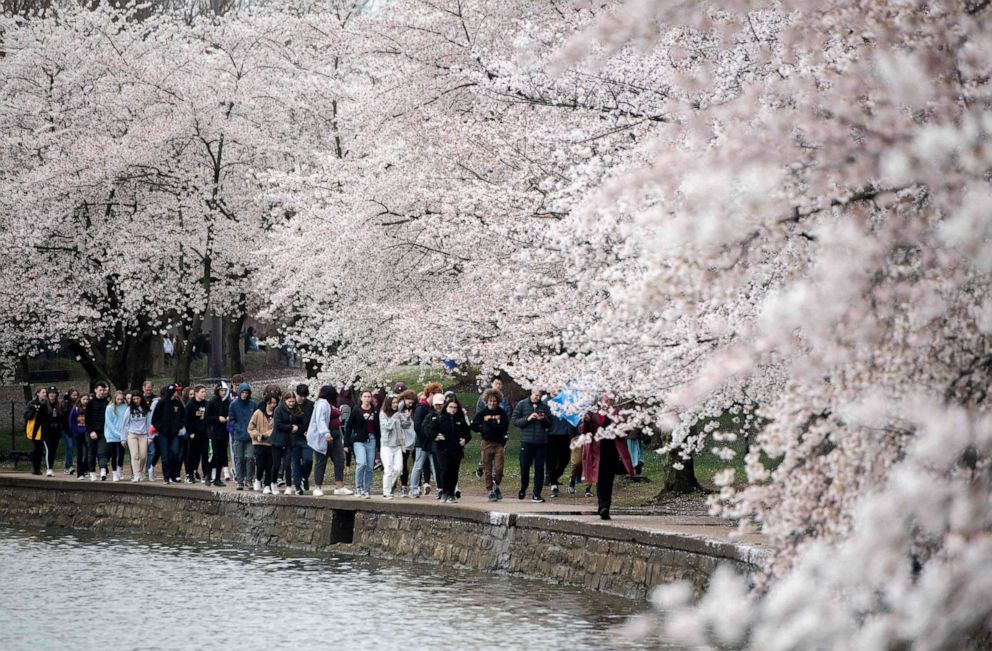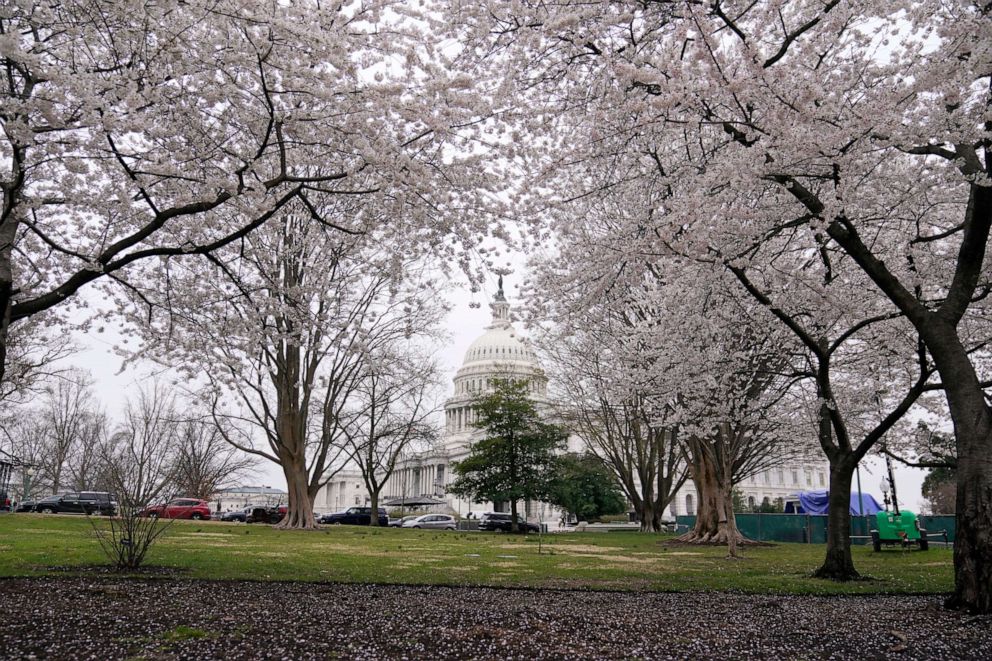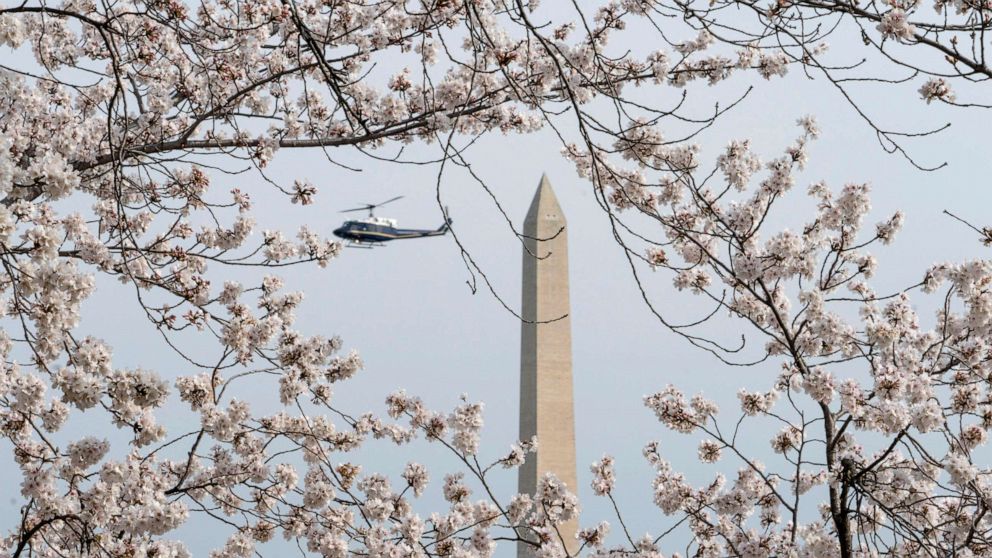Washington welcomes spring with cherry blossoms in full bloom
The iconic cherry blossoms that circle the Tidal Basin in Washington, D.C., reached peak bloom Monday, according to the National Park Service, but are still drawing large crowds despite cold, windy weather.
Peak bloom occurs when 70% of the Yoshino cherry blossoms are open and typically lasts several days, the service said.
The cherry trees "signal Washington's beginning of spring with an explosion of life and color that surrounds the Tidal Basin in a sea of pale pink and white blossoms," its website said.

Each year, thousands flock to see the blossoms, which share a landscape with the Jefferson Memorial, Washington Monument and the Martin Luther King Jr. Memorial.
The flowers really defy description, National Park Service spokesperson Mike Litterst told ABC News.
"If you live in Washington, D.C., it's a beautiful sign that spring is here and that we made it through a long winter," he said. "Really, over the last 110 years, cherry blossoms (have) become the city's grandest kind of tradition."
The final stage in the flowers' bloom came a day before the beginning of the predicted timeframe, which was between March 22 and 25, according to the Park Service website.
The National Cherry Blossom Festival, which began March 2, goes through April 17.
The festival's website says it "welcomes more than 1.5 million people to enjoy diverse and creative programming promoting traditional and contemporary arts and culture, natural beauty, and community spirit."
Its president, Diana Mayhew, said just like the cherry blossoms, the annual festival represents hope, renewal and spring.
"I think people just look forward to this time of year, and of course the beautiful cherry blossom trees," she said. "They're just unique. And (they) themselves bring so many people to reflect and enjoy (the) beauty of nature."

The planting of cherry trees in Washington, D.C., began in 1912 as a gift of friendship from the people of Japan to the people of the United States, according to the National Cherry Blossom Festival website.
To help care for the trees, Litterst advises visitors not to climb them, pick the blossoms or break their branches.
"Many of the trees are 60, 70, 80 years old, if not older, and are more fragile than they appear," he said. "And we ask people to stay on the sidewalks and the walkways as much as they can to keep from walking on and damaging the roots."




